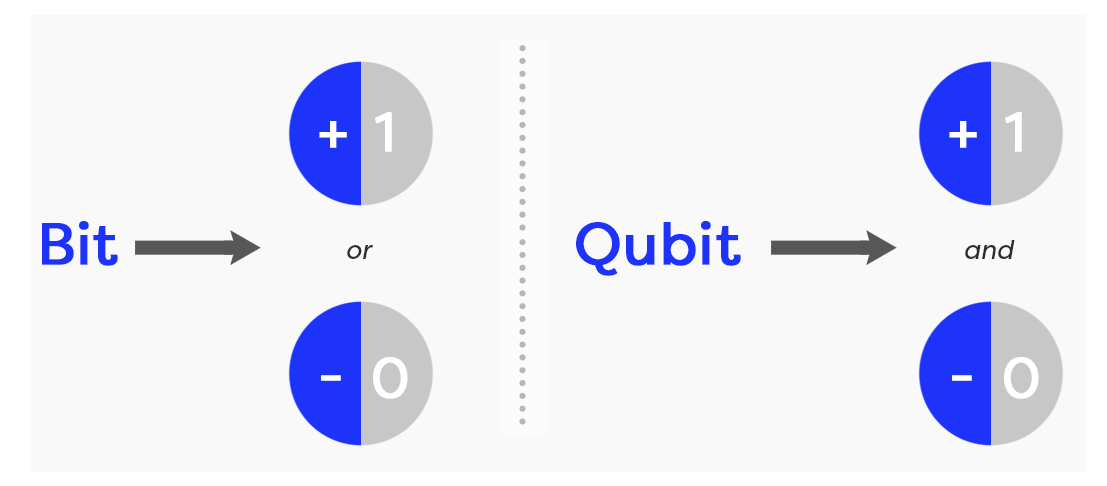Quantum computing is one of those technologies set to transform the world as we know it. At the moment it is only a call for the future. Although it has already taken some steps to demonstrate how far it can go in sectors like finances and data processing. Services such as product customization or improving the accuracy of studies are some examples to help understand what this technological realm promises for the future. But before we get to know them, let us understand what quantum computing actually is.
What is Quantum computing?
Current computing, which operates on bits, processes information in only two states: zero or one. On the other hand, quantum technology also works with the superposition of both, through the so-called qubits. Just like classical computers, quantum computers use ones and zeros, but qubits have a third state called “superposition” that allows them to represent a one or a zero at the same time.
The consequence is that while with bits the calculation management is linear, with qubits the processes increase exponentially. “The capacity of these machines will advance rapidly and we will cross the threshold of having calculation processing that we cannot emulate with classical computers,” says some recent IBM Research.

Another aspect in which quantum computing can mean improvements is in everything related to risk and financial research. Calculating externalities and understanding how different types of risk relate to each other is extremely complex work. However, most of the banking sector believes that quantum computing could help reduce the problems lurking in their investment portfolios. Instead of looking to the past to analyze what happened, a quantum computer would react quickly to changing economic environments and make decisions almost instantly -says Stefan Woerner, one of the visible heads of an IBM study on binomial finance and quantum computing.
Overcome the Montecarlo Method
One of the capabilities of today’s computing, simulations, is a key element of the financial sector, which require more time to solve complex formulas. One of the most common banking methods used to do this is known as the Montecarlo Method, a mathematical technique, which is used to estimate the possible outcomes of an uncertain event. Banks will use this method to simulate possible scenarios closely as possible, and then predict and analyze what might happen. When quantum computing takes shape, the calculation speed of this type of method will increase quadratically. Experts say this quadratic acceleration can have a positive business impact by reducing capital allocation needs, finding new investment opportunities and reacting faster to market volatility.
What is a quantum computer used for?
Companies and institutions are investing in this new technology that will impact the business models of different sectors. Although its commercialization is still a long way off, there are already glimpses of use cases in sectors such as cybersecurity or medicine and healthcare.
Cybersecurity would also be affected by the takeoff of this technology. For the financial sector, it is vital to keep data, investments and all types of products involving sensitive information safe. Organizations must act to adopt cryptographic techniques that protect information on both classical and quantum computers. For example, some types of network-based cryptography that are resistant to quantum computing attacks are being explored. Until now, no algorithm has broken these encryption methods, which can help protect against future and present threats.
Quantum standardization will also not be widely adopted until computers have the ideal physical conditions to work with this technology – they require a lot of electrical energy and optimal air conditioning.
IBM, Google and D-Wave are some of the names that are pushing to cross the finish line as soon as possible. The first foundations are already laid, but there are still too many variables to know where the limits will be. The financial sector faces different areas with an opportunity for exceptional improvement based on this technological zeitgeist.



